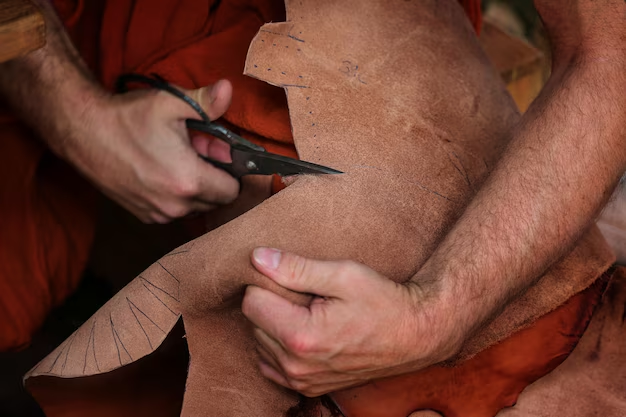In the world of French culture and language, most people are familiar with Parisian French, iconic expressions, and widely celebrated traditions. Yet, beneath this polished surface lies a treasure trove of regional words that hold layers of history, identity, and meaning. One such example is musté, a term that may not appear in everyday French textbooks but continues to intrigue those who encounter it.
At its heart, musté embodies authenticity, heritage, and a rustic way of life tied to southern France. It sparks curiosity because it represents more than a single definition — it reflects a worldview that connects language, land, and community. For anyone passionate about French culture, musté is more than a linguistic curiosity; it is a living window into heritage that is often overlooked in mainstream narratives.
The Origins of Musté
To understand musté, one must begin with its roots in the Occitan language, once widely spoken across Provence, Languedoc, Catalonia, and parts of northern Italy. Occitan, a Romance language related to French, Spanish, and Italian, thrived in medieval courts and villages but gradually gave way to standardized French. Still, many words and expressions survived in rural areas, carried forward in daily speech and cultural traditions.
Musté likely emerged from these dialectal currents, evolving as a descriptor tied to rustic authenticity. Linguists believe it originated from words that conveyed something natural, unrefined, or grounded in local life. In Occitan-speaking communities, it became a shorthand for qualities that were earthy, heartfelt, and deeply tied to the rhythms of rural living.
Its historical background mirrors the fate of many regional expressions in France: marginalized by centralization yet cherished by locals as emblems of identity. Through musté, we can glimpse not only a word but also the persistence of a culture that resists fading into obscurity.
Musté in French Culture and Daily Life
The word musté carries more than a literal translation; it represents values embedded in French daily life, especially in the south. To describe something as musté is to capture its unpolished yet genuine essence.
Consider food. A dish prepared with fresh, locally grown ingredients, seasoned with herbs from the garden, and shared among family may be described as musté. It is not haute cuisine but rather a celebration of authenticity, where the flavor comes as much from tradition as from the recipe itself.
The same can be said of regional festivals. A harvest celebration where villagers gather, share wine, sing songs, and honor the land embodies the musté spirit. These events are not designed for tourists or modern spectacle; they are rooted in continuity, a bridge between past and present.
Even attitudes can be musté. A person known for being down-to-earth, humble, and true to their roots might be described this way. In each use, the word points to something authentic, heartfelt, and inseparable from cultural identity.
Linguistic Depth and Regional Identity
Language is more than communication; it is an anchor of identity. Musté illustrates how a single word can carry the pride of a region.
For the communities of Provence and Occitania, using words like musté is an act of cultural preservation. While French dominates as the national language, these dialectal expressions maintain a living connection to history. They remind speakers that their culture is not just part of a uniform France but a mosaic of regional voices.
Scholars of sociolinguistics often emphasize that such words are not relics but markers of belonging. They embody regional pride, signaling authenticity in ways that modern French may not capture. To use musté is to situate oneself within a cultural lineage that values continuity over convenience.
In this way, musté is more than vocabulary. It is a linguistic emblem of southern identity — one that resists erasure by celebrating uniqueness.
The Symbolism Behind Musté
The symbolism of musté reaches far beyond its Occitan roots. It conveys a philosophy of life that values authenticity over artifice, simplicity over excess, and community over individualism.
Emotionally, the word resonates with nostalgia. It reminds older generations of a slower, land-based rhythm of life and reassures younger generations of their heritage in a rapidly globalizing world. A village square filled with laughter, the scent of bread from a stone oven, or the sound of folk music on a summer evening — all these moments could be described as musté.
Culturally, it symbolizes resistance to homogenization. In a society where mass production and digital culture dominate, musté stands as a reminder of human scale, authenticity, and the value of tradition. Its endurance suggests that people continue to crave connections that feel real and rooted.
Modern Relevance of Musté
Although musté is a word from the past, it has not disappeared. Instead, it has found new life in the present. Writers who explore French rural identity use it as a way to evoke atmosphere. Filmmakers borrow it to highlight authenticity in characters and settings. Chefs use it to describe dishes that lean on artisanal methods rather than industrial shortcuts.
In the culinary world, musté aligns with the slow food movement, where provenance, sustainability, and craftsmanship matter as much as taste. In literature, it offers a narrative shorthand for authenticity and rawness. In art, it conveys a style that avoids polish in favor of depth and humanity.
In today’s digital age, the resurgence of interest in local traditions makes musté increasingly relevant. From organic farming to artisanal crafts, people are rediscovering the value of heritage. The word provides language for that rediscovery, allowing individuals to frame authenticity as a cultural choice rather than a nostalgic accident.
Experiencing Musté Firsthand
For those intrigued by musté, the best way to encounter it is not through dictionaries but through experience.
Travelers to Provence or Occitania can immerse themselves in landscapes where the word still resonates. Walking through olive groves, visiting weekly village markets, or attending a local fête allows one to feel the spirit of musté in action. It is not about luxury but about connection — connection to people, food, and traditions that have endured for centuries.
Even if travel is not possible, musté can be embraced at home. Cooking a Provençal meal with seasonal, local ingredients reflects its spirit. Supporting artisans who use traditional methods to create pottery, textiles, or wine brings the essence of musté into daily life. Even adopting an attitude of humility and authenticity can be seen as practicing musté in a personal way.
Ultimately, to experience musté is to value the simple, the grounded, and the authentic.
Conclusion: Why Musté Still Matters
In conclusion, musté is far more than an obscure regional term. It is a cultural key that unlocks the values of authenticity, heritage, and identity in southern France. It ties language to land, history to community, and memory to everyday life.
As globalization accelerates, words like musté remind us that cultural richness lies not only in grand narratives but also in local voices. They preserve traditions that might otherwise fade, offering continuity in a world of constant change.
For anyone exploring French culture, musté provides more than a linguistic curiosity. It offers an enduring lesson: that authenticity, rootedness, and connection are values worth cherishing. In this way, musté remains timeless — a quiet but powerful reminder of why culture matters.




